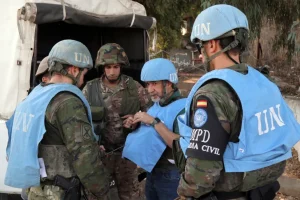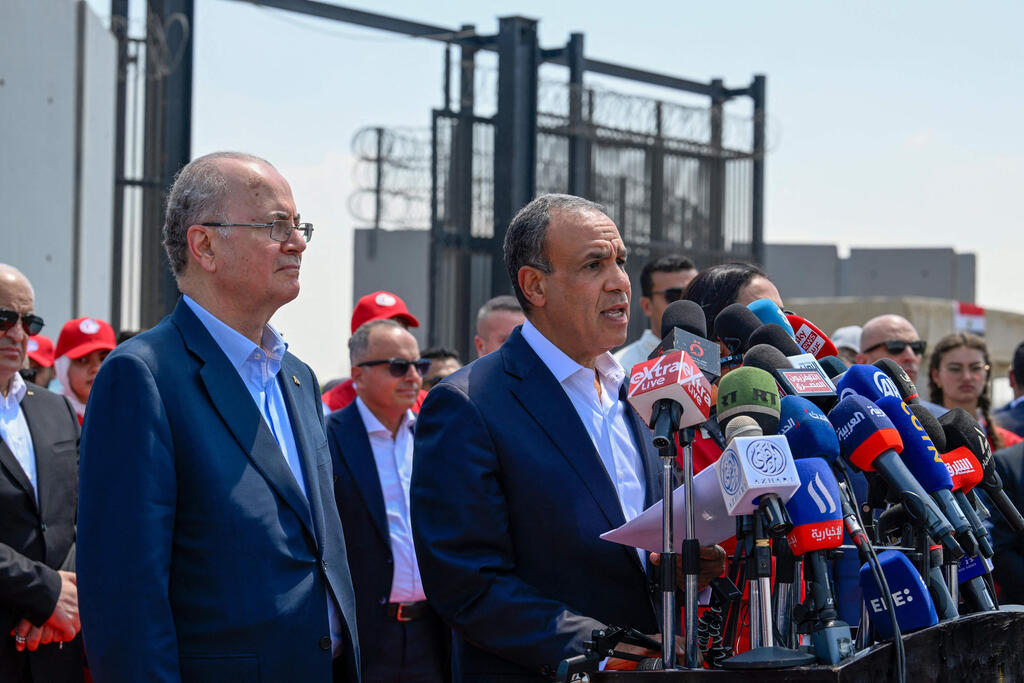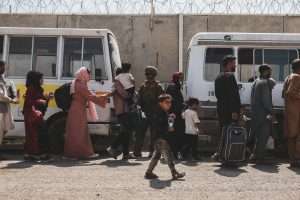Egypt intensifies diplomacy efforts amid Sudan-Libya tensions

Egypt is intensifying its diplomacy efforts to promptly contain rapidly escalating tensions in the unstable border triangle region shared by Sudan, Libya and Egypt, according to The Arab Weekly plus agencies on July 2nd.
Head of Sudan’s Sovereignty Council and Military, Abdel Fattah Al-Burhan, arrived in Cairo at the same time as Libyan commander Khalifa Haftar, marking Egypt’s first public diplomatic intervention in a geopolitical crisis which threatens to destabilise the region along its southwestern boundary.
On the evening of June 30th, Egyptian President Abdel Fattah El-Sisi discussed the latest developments in Sudan with Al-Burhan. The two figures also examined ongoing international and regional initiatives seeking to restore stability and security in Egypt’s war-torn neighbour.
Al-Burhan’s visit to Cairo was unannounced and shortly followed Haftar’s arrival, where he too held talks with El-Sisi. This placed Egypt as the main actor pushing efforts to defuse rising regional tensions.
Al-Burhan prematurely departed from his attendance at the United Nations’ fourth Financing for Development conference in Seville, which runs until July 3rd. The pressing need to resolve regional tensions compelled Al-Burhan to sacrifice important meetings with influential international figures, including Spanish Foreign Minister Jose Manuel Albares.
The mounting border triangle crisis first emerged in early June when the Sudanese military withdrew from the area after accusing Haftar of supporting Sudan’s Rapid Support Forces, a paramilitary group at war with the military and led by Mohamed Hamdan Dagalo, known as Hemedti.
The power vacuum left by the withdrawal ultimately led to a heightened RSF presence in a strategic zone at the border triangle. These developments have presented Cairo with a very precarious balancing act as it seeks to maintain strong relations with both Haftar and Al-Burhan’s militaries.
Egyptian Presidential spokesman Mohamed Al-Shenawy said that the meeting between El-Sisi and Al-Burhan, held in northern El Alamei, “discussed recent developments on the ground in Sudan, alongside regional and international efforts to restore peace and stability.”
He also highlighted that El-Sisi reiterated Egypt’s unequivocal support for Sudan’s unity, sovereignty, security and stability, whilst also affirming his preparedness to deploy all efforts to achieve such objectives.
Al-Shenawy noted that “both sides agreed on intensifying efforts to support the brotherly Sudanese people amid the severe humanitarian challenges caused by the ongoing conflict.”
The discussions also explored means through which bilateral ties could be enhanced, including reconstruction efforts and opening new avenues of cooperation, especially in economic sectors. This represents another step in Egypt’s push towards pan-African development and collaboration, with the nation recently articulating its commitment to reinforcing multilateral cooperation in Africa to improve water security.
Both sides also discussed issues relating to the Nile Basin and the Horn of Africa, expressing agreement over national security concerns regarding unilateral actions in the Blue Nile Basin. They called for the respect of international law to preserve the interests of all Nile Basin countries.
Al-Burhan expressed his gratitude for the robust Sudanese-Egyptian relationship and affirmed his commitment to enhancing collaboration and deepening ties, according to a statement from Sudan’s Transitional Sovereignty Council. He also commended Egypt for its supportive role in international forums and providing humanitarian assistance to Sudan.
On June 23rd, RSF leader Hemedti publicly stated his readiness to engage in direct diplomacy with Egypt to resolve any disputes. In the past, Hemedti has accused Cairo of providing support to the Sudanese military and conducting airstrikes against the RSF.
Hemedti reassured regional states that RSF control over the border triangle “if not an addition, will not be a threat” to them. The region is highly strategically significant as it is rich in mineral resources and links three countries.
Cairo has remained cautiously silent on the evolving situation on its border, although it has simultaneously ramped up its coordination with Sudan’s military leadership.
Egypt has also increased military backing on the public diplomacy front to such a degree that power balances on the ground have been influenced. This illustrates that, despite its silence, Egypt is seriously concerned about the RSF’s territorial gains into the border triangle.
Reports suggest that Egypt has officially replaced the UK by joining the Sudanese Quartet. This highlights Egypt’s approach to the conflict as going beyond purely military measures to include high-level diplomacy with countries that hold sway over restoring stability to Sudan.
This demonstrates that although the border triangle dispute may seem relatively localised, it has the potential to rapidly ignite a wider regional security crisis due to the multitudes of actors involved.
Cairo’s endeavour to spark direct talks between all key actors reflects an understanding that addressing a delicate situation that risks spilling over into neighbouring countries requires a comprehensive strategy, combining diplomacy with proactive security measures.
The Arab Weekly plus agencies, Maghrebi.org
Want to chase the pulse of North Africa?
Subscribe to receive our FREE weekly PDF magazine










